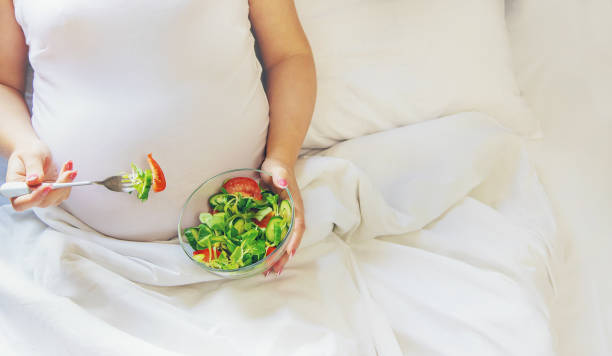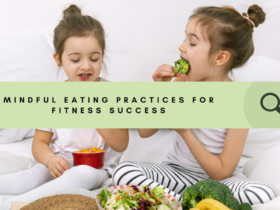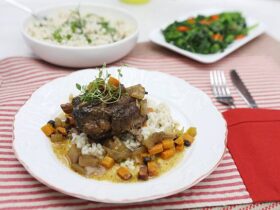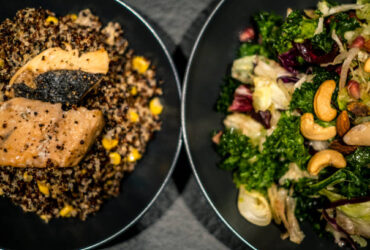Fertility Food List: The Best Foods to Eat for Conception
When it comes to conception, nutrition plays a pivotal role in enhancing fertility for both men and women.
The foods we eat can impact hormone production, egg and sperm quality, and overall reproductive health.
In this definitive guide, we’ll explore a comprehensive fertility food list brimming with nutrients that can boost your chances of conception.
So, if you’re ready to optimize your diet for fertility, let’s dive in!
Understanding Fertility and Nutrition
Fertility refers to the ability to conceive a child, and numerous factors can influence this ability, including age, health status, and lifestyle choices.
One of the most crucial yet often overlooked aspects of fertility is nutrition.
The right foods bolster hormonal balance and provide the essential vitamins and minerals that enhance reproductive functions.
Key Nutrients for Fertility
- Folic Acid
Folic acid is known for reducing the risk of neural tube defects in developing fetuses. However, it also plays a role in the production of eggs. Foods rich in folate include leafy greens, legumes, and fortified cereals. - Zinc
This essential mineral is crucial for sperm production in men and can improve hormone levels and menstrual regularity in women. Oysters, meat, pumpkin seeds, and lentils are excellent sources of zinc. - Omega-3 Fatty Acids
Omega-3s help regulate hormones and enhance blood flow to the reproductive organs. Fatty fish, flaxseeds, and walnuts are packed with omega-3s. - Vitamin D
Vitamin D deficiency has been linked to infertility. Sun exposure aids in vitamin D synthesis, but it’s also found in fortified dairy products and fatty fish. - Antioxidants
Antioxidants protect the body from oxidative stress, which can affect fertility. Berries, nuts, and dark chocolate are rich in antioxidants.

The Ultimate Fertility Food List
Here’s a detailed look at the foods that should be staples in your fertility diet.
1. Leafy Greens
Spinach, Kale, and Broccoli
These greens are a great source of folate and iron, which help improve egg quality and increase the chances of conception.
2. Fruits
Berries, Oranges, and Avocados
Rich in antioxidants, vitamins, and healthy fats, these fruits not only enhance reproductive health but also contribute to overall wellness. The vitamins C and E found in berries can support hormone balance.
3. Whole Grains
Quinoa, Brown Rice, and Oats
Whole grains are integral sources of complex carbohydrates and fiber, which help stabilize blood sugar levels. This stability can lead to more regular menstrual cycles.
4. Lean Proteins
Chicken, Turkey, and Legumes
Protein is essential for hormonal balance. Opting for lean proteins can help maintain healthy body weight, which is essential for fertility.
5. Nuts and Seeds
Almonds, Walnuts, and Flaxseeds
Nuts and seeds are packed with healthy fats, protein, and minerals that support reproductive health. Omega-3 fatty acids from walnuts and flaxseeds can also reduce inflammation.
6. Dairy (or Alternatives)
Greek Yogurt and Fortified Plant-Based Milks
Dairy products provide calcium and vitamin D, both necessary for reproductive health. If lactose intolerant, consider fortified plant-based alternatives.
7. Fatty Fish
Salmon, Sardines, and Mackerel
These fish are not only rich in omega-3 fatty acids but also have protein and nutrients that contribute to hormonal health and embryo development.
8. Legumes
Beans, Lentils, and Chickpeas
They are excellent sources of protein and fiber, making them perfect for a balanced diet. They also contain folate, which is critical for preconception health.
9. Sweet Potatoes
The Fertility Superfood
Rich in beta-carotene (converted to vitamin A), sweet potatoes help regulate reproductive hormones. They’re also a fantastic source of complex carbohydrates.
10. Dark Chocolate
A Treat for Health
Yes, you read that right! Dark chocolate is rich in antioxidants and can improve blood flow, making it a delicious fertility-friendly snack.

Foods to Avoid for Optimal Fertility
While focusing on fertility-boosting foods, it’s equally important to steer clear of items that can hinder your chances of conception.
1. Trans Fats
Stay Away from Processed Foods
Trans fats can negatively affect insulin sensitivity and harm ovulation. Common sources include fried foods, doughnuts, and margarine.
2. High Sugar Items
Limit Sweets and Sugary Drinks
High sugar intake can lead to insulin resistance, affecting ovulation. It’s essential to stay away from sodas, candies, and processed snacks.
3. Caffeine
Moderation is Key
Excessive caffeine can affect fertility. Limit your intake to less than 200 mg per day (equivalent to about one 12-ounce cup of coffee) if you’re trying to conceive.
4. Alcohol
Avoiding Excessive Drinking
Alcohol consumption has been linked to fertility issues. It’s wise to minimize or eliminate alcohol intake when trying to conceive.
5. Certain Fish
Beware of Mercury Levels
Some fish, such as shark, swordfish, and king mackerel, can contain high levels of mercury. Stick with low-mercury fish for safety.

Meal Planning for Fertility
Incorporating fertility-friendly foods into your daily meals can be simple and delicious. Here’s a sample meal plan to get you started.
Breakfast
- Overnight Oats with chia seeds, chopped walnuts, and fresh berries.
- A glass of fortified almond milk or Greek yogurt on the side.
Lunch
- A Quinoa Salad with spinach, chickpeas, diced avocado, and a lemon-tahini dressing.
- A serving of mixed fruit for dessert.
Snack
- A small handful of almonds or a piece of dark chocolate.
Dinner
- Grilled Salmon with roasted sweet potatoes and steamed broccoli.
- A green salad drizzled with olive oil for extra nutrients.
Before Bed
- A cup of herbal tea (like chamomile) or a serving of cottage cheese for a light snack.

Lifestyle Factors that Affect Fertility
While diet is critical for fertility, it’s just one part of the equation. Several lifestyle factors can enhance or hinder your chances of conception.
1. Regular Exercise
Staying active helps maintain a healthy weight and balance hormones. Aim for at least 30 minutes of moderate exercise most days of the week.
2. Stress Management
Chronic stress can affect hormone levels and ovulation. Incorporating mindfulness practices like yoga, meditation, or deep-breathing exercises can be beneficial.
3. Getting Enough Sleep
Quality sleep is essential for overall health and fertility. Aim for 7-9 hours of uninterrupted sleep every night to allow your body to recharge.
4. Maintaining a Healthy Weight
Being overweight or underweight can disrupt hormone levels and interfere with ovulation. Achieving and maintaining a healthy weight is crucial when trying to conceive.
5. Avoiding Environmental Toxins
Minimize exposure to chemicals and pesticides, which can affect fertility. When possible, choose organic produce and avoid plastic containers and bottles.

Conclusion
In summary, optimizing your diet with a well-rounded fertility food list is a potent step toward improving your chances of conception.
Incorporating nutrient-rich foods like leafy greens, fruits, healthy fats, and lean proteins while avoiding unhealthy foods contributes to a balanced and fertility-friendly diet.
Remember, this journey to conception is not just about what you eat; it’s about creating a supportive lifestyle that promotes your overall well-being.
By investing in your diet and health, you pave the way for a healthier future for yourself and your growing family. Keep your focus on whole, nutritious foods, and listen to your body’s needs throughout this beautiful journey.
FAQs
What are the top three foods to boost fertility?
The top three foods for boosting fertility include leafy greens, fatty fish, and nuts and seeds, all rich in essential vitamins and healthy fats.
How does folic acid impact fertility?
Folic acid supports the healthy development of eggs and is crucial in preventing neural tube defects when conception occurs.
Can weight loss affect fertility?
Yes, both being overweight and underweight can disrupt hormone levels and regular ovulation, affecting fertility.
Is it safe to consume caffeine when trying to conceive?
While moderate caffeine consumption is generally considered safe, it’s advisable to limit intake to 200 mg daily to minimize potential risks.
How long should I follow a fertility diet?
Ideally, you should adopt a fertility-friendly diet for at least three months before trying to conceive, as it can take this long for eggs and sperm to mature.
Can hydration affect fertility?
Yes, staying well-hydrated helps maintain optimal body function, including hormonal balance, which is important for fertility.
Are there any supplements that can enhance fertility?
Yes, supplements like folic acid, vitamin D, and omega-3 fatty acids may help boost fertility, but it’s best to consult with a healthcare provider before starting any new supplements.
References:
- American College of Obstetricians and Gynecologists. (n.d.). Nutrition and Fertility.
- World Health Organization. (n.d.). Nutrition for Health and Development.
- Mayo Clinic Staff. (n.d.). Fertility issues: The connection between weight and fertility.
By incorporating these changes into your routine, you can create a nurturing environment for conception, maximizing your chances of starting the family you’ve always dreamed of!
Reference Links:
Here are some reputable sources that provide further information on fertility and nutrition:
- American College of Obstetricians and Gynecologists – Nutrition and Fertility:
- World Health Organization – Nutrition for Health and Development:
- Mayo Clinic – Fertility Issues and Overweight:
- Centers for Disease Control and Prevention – Preparing for a Healthy Pregnancy:
- National Institutes of Health – Nutrition and Fertility:
Make sure to explore these sources for comprehensive and reliable information regarding nutrition and its impact on fertility.















Leave a Reply